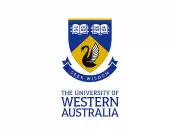Bachelor’s degree in Australia
- Briefly about bachelor degree in Australia
- Features of bachelor’s degrees in Australia
- Advantages of a bachelor's degree in Australia
- Disadvantages of a bachelor’s degree in Australia
- Admission requirements for a bachelor’s degree in Australia
- Documents for applying to a bachelor’s degree in Australia
- Tuition fees for a bachelor’s degree in Australia
- Scholarships and grants – government, university, corporate; criteria and deadlines
- Job search after a bachelor’s degree in Australia
- Frequently Asked Questions

Bachelor of Business - Accounting
Kaplan Business SchoolThe Bachelor of Business (Accounting) will teach you important business ideas as well as the necessary practical skills to establish a successful career in accounting.
The course is CPA Australia, CA ANZ, and ACCA recognised, and it provides a direct track to professional certification and…

Bachelor of Business - Hospitality and Tourism Management
Kaplan Business SchoolIn today's more mobile world, hospitality and tourism is becoming one of the major worldwide sectors.
You will learn business communication skills, financial literacy, and a variety of other transferrable abilities as part of our Bachelor of Business (Hospitality & Tourism Management). This…

Bachelor of Business - Management
Kaplan Business SchoolLearn the fundamentals of managing people in a professional setting with our Bachelor of Business (Management) degree program.
The knowledge you gain here is transferable to any field and can be used to create effective, ethical, and prosperous groups and companies.

Bachelor of Business - Marketing
Kaplan Business SchoolIf you want to work as a marketer, the Bachelor of Business (Marketing) is the programme for you.
You will be equipped with the fundamental understanding and techniques of marketing, which is becoming increasingly strategic, diverse, and changing. You will learn research, problem-solving,…

Bachelor - Architectural Technology
Torrens University AustraliaA Bachelor of Architectural Technology prepares you to reshape the future of architecture with cutting-edge digital tools. The first course of its kind in Australia, you’ll get deep into computer-aided design and building information modelling, giving you the technical edge needed to thrive in the…

Bachelor of Science - Chemistry
The University of Western AustraliaSince chemistry is essential to almost every field of contemporary science and is studied by so many scientists, it is frequently referred to as the central science. Chemistry is a molecular science that studies materials and molecules, investigates their properties, and determines how to use them.
A…

Bachelor of Science - Cybersecurity
The University of Western AustraliaThrough industry-integrated learning, this major will equip you with the skills, methods, tools, and information you need to spearhead the development, deployment, and administration of safe computer systems that shield users and their data from online threats. Skills and knowledge in cybersecurity,…

Bachelor of Science - Botany
The University of Western AustraliaThe scientific study of plants, including their intricate cell functions, vital roles in ecosystems, and structure and function, is known as botany. Botanists actively contribute to reducing the loss of biodiversity by researching how plants change and adapt to shifting surroundings and climates.…

Bachelor of Science - Geology
The University of Western Australia
Bachelor of Biomedical Science - Neuroscience
The University of Western AustraliaLearn about every aspect of the nervous system, from the molecules that comprise individual nerve cells and the information flow between them to the intricacies of behavior, cognition, and emotion. The restoration of nervous system function following brain injury and illness is of interest to neuroscientists.…
Briefly about bachelor degree in Australia
Bachelor’s degree programs in Australia are in high demand among international students due to the high quality of education, international recognition of diplomas, and variety of fields. A bachelor’s degree (Bachelor’s Degree) is the first level of higher education, lasting from 3 to 4 years depending on the chosen specialization and university.
The education system in Australia is flexible and practice-oriented, and the country’s universities consistently rank highly in international rankings. An Australian bachelor’s degree diploma opens wide opportunities for continuing studies at the master’s level or starting a career not only in Australia but also in other countries around the world.
Features of bachelor’s degrees in Australia
The Australian bachelor’s degree has a number of features:
- Duration of study: 3 years for a standard program, 4 years for an Honours program, as well as for some professional fields — for example, engineering, education, or medicine.
- Practice-oriented approach: the learning process includes internships, group projects, real cases, and laboratory research.
- Flexibility in course selection: students can combine courses and create an individual educational trajectory.
- Language of instruction: English, so proof of language proficiency is required (usually IELTS Academic from 6.0 and above).
- Credit system: a system of credits is used, allowing previously completed courses to be recognized.
- International recognition: Australian diplomas are recognized by employers and universities worldwide.
Advantages of a bachelor's degree in Australia
Studying in Australia opens many prospects for students:
- High quality of education — 7 Australian universities are ranked in the top 100 of the QS World Ranking.
- International environment — about 30% of all students in Australia are foreigners.
- Modern infrastructure — campuses are equipped with the latest technology.
- Student support — career development centers, language assistance, psychological and academic consultations.
- Opportunity to work during studies — up to 48 hours per two weeks during the study period and unlimited hours during holidays.
- Immigration prospects — after completing the program, graduates can obtain a Post-Study Work Visa.
Disadvantages of a bachelor’s degree in Australia
Despite obvious advantages, there are some disadvantages to consider:
- High cost of tuition and living expenses.
- Long path to obtaining permanent residency.
- High competition for some specializations and scholarships.
- Need to adapt to cultural and climatic conditions.
- Differences in the education system compared to the CIS and Europe, which may cause difficulties at the initial stages.
Admission requirements for a bachelor’s degree in Australia
To apply, international students must meet the following requirements:
- High school certificate (or diploma of secondary vocational education — for example, college).
- Academic performance — on average not lower than 70% in core subjects.
- Certificate confirming English language proficiency — IELTS Academic (from 6.0), TOEFL iBT (from 60–78), or PTE Academic.
- Sometimes — completion of a Foundation or Diploma program (for students whose education does not directly meet the requirements).
- Motivation letter and/or recommendations (depending on the university).
Documents for applying to a bachelor’s degree in Australia
The application package includes:
- Completed university application form.
- Certified translation of the school certificate/diploma with grades.
- IELTS, TOEFL, or PTE certificate.
- Passport.
- Letters of recommendation (if required).
- Motivation letter.
- Portfolio (for creative specialties).
- Proof of financial solvency (for obtaining a visa).
- Copy of visa and health insurance (after admission).
Tuition fees for a bachelor’s degree in Australia
Education in Australia is among the most expensive in the world but matches its quality. The table shows approximate prices:
| Field of study | Average cost per year (AUD) |
|---|---|
| Humanities, Business | 20,000 – 35,000 |
| Engineering, Technology | 28,000 – 45,000 |
| Medicine, Dentistry | 45,000 – 70,000 |
| Art and Design | 25,000 – 40,000 |
Additionally, living expenses should be considered — about 21,000 AUD per year.
Scholarships and grants – government, university, corporate; criteria and deadlines
International students can apply for a number of scholarships:
1. Government programs:
- Australia Awards Scholarships — cover full tuition fees, airfare, and living expenses.
- Destination Australia Program — aimed at supporting education in regional areas.
2. University grants:
- Provided by most universities (University of Sydney, Monash University, University of Melbourne, etc.).
- Amount ranges from 5,000 to 50,000 AUD.
- Requirements: academic performance, leadership qualities, participation in community activities.
3. Corporate and private foundations:
- For example, the Westpac Future Leaders Scholarship or Rotary Peace Fellowship.
Application deadlines:
Most deadlines range from March to October, depending on the university and program.
Job search after a bachelor’s degree in Australia
Australian graduates can stay in the country for employment under the Post-Study Work Visa (subclass 485), valid from 2 to 4 years. Opportunities include:
- Work in the field of study, internships, and practical training.
- University career centers assist with resume writing and interview preparation.
- In-demand fields: IT, engineering, healthcare, education, finance, and business.
Graduates with work experience may later apply for a Skilled Independent Visa and stay in Australia permanently.
Frequently Asked Questions
1. Can I enter an Australian university after the 11th grade?
Yes, but most likely you will need to complete a Foundation or Diploma preparatory program.
2. What level of English is required?
Minimum — IELTS 6.0 or TOEFL 78. Some programs require higher.
3. Is it expensive to live in Australia?
Yes, the cost of living averages 1,750 AUD per month (housing, food, transport).
4. Is it difficult to get a scholarship?
Competition is high, but with a strong academic profile and motivation, the chances are good.
5. Which fields are the most in demand?
Business, engineering, medicine, IT, and environmental science are the most promising areas.